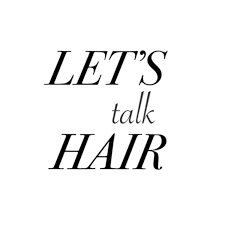
Hello everyone and welcome back to the Frazzle Files!
Trauma, in many forms, often leaves an indelible mark on our psyche. What if I told you that something as seemingly innocuous as hair could hold deep emotional significance? Hair holding trauma is a complex phenomenon that intertwines our physical appearance with our emotional well-being. This blog post delves into the concept of hair holding trauma, its origins, manifestations, and the healing process.
What is Hair Holding Trauma?
Hair holding trauma refers to the emotional and psychological effects associated with our hair—its style, condition, or even the act of caring for it. This trauma can stem from various experiences, including societal pressures, personal experiences, cultural beliefs, and traumatic events. It often manifests as anxiety surrounding hair loss, negative body image, or an obsession with hair care rituals.
The Psychological Connection
Hair is not just a physical trait; it carries significant emotional weight. For many cultures, hair symbolizes identity, beauty, and power. From ancient traditions where hair was a sign of strength to modern society where it often defines beauty standards, our hair can represent a lot about who we are or how we perceive ourselves.
Origins of Hair Holding Trauma
- Societal Pressures: In an image-driven world, societal beauty standards can impose unrealistic expectations on hair. This pressure can cause individuals to feel inadequate, especially if their natural hair differs from the mainstream ideals portrayed in media.
- Cultural Significance: Different cultures have unique beliefs and traditions surrounding hair. For instance, losing hair due to illness or aging can trigger feelings of loss within cultures that place great emphasis on hair as a symbol of beauty.
- Childhood Experiences: Hair often becomes a focal point in childhood. Bullying over hair texture, style, or color can have lasting effects, creating a deep-rooted trauma that can manifest in adulthood.
- Traumatic Events: Experiencing significant trauma, such as losing a loved one or undergoing major life changes, can result in hair loss or change in hair texture, further complicating one’s relationship with their hair.
Signs of Hair Holding Trauma
Understanding the signs of hair holding trauma is the first step toward healing. Here are some common manifestations:
- Obsessive Hair Care: Spending excessive time or money on hair care products and treatments in an attempt to achieve a certain look can indicate an unhealthy relationship with hair.
- Hair Loss Anxiety: Worrying constantly about hair thinning or hair loss can lead to stress and anxiety, impacting everyday life and self-esteem.
- Negative Self-Image: A persistent negative perception of one’s hair can lead to overall body image issues.
- Avoidance: Some may go to the extreme of avoiding social situations where their hair could be judged, leading to isolation and further emotional distress.
Healing from Hair Holding Trauma
While hair holding trauma may seem daunting, the healing journey is entirely possible. Here are some steps to consider:
- Acknowledge Your Feelings: The first step in healing is recognizing and acknowledging your feelings surrounding your hair. Whether it’s anxiety, sadness, or frustration, understanding your emotions is crucial.
- Seek Professional Help: Consider talking to a therapist or counselor, especially someone with experience in body image issues or trauma. Therapy can provide a safe space to explore emotions tied to hair.
- Celebrate Your Hair’s Uniqueness: Engage in practices that allow you to appreciate your natural beauty. This could involve sharing your hair journey with others, participating in self-love challenges, or embracing styles that reflect your personality without conforming to societal norms.
- Educate and Advocate: Learning about the history of beauty standards and advocating for diverse representations can help empower both yourself and others. Knowledge can transform trauma into activism.
- Practice Self-Compassion: Be gentle with yourself. Our relationship with our hair, much like other aspects of our identity, can be complex. Practicing self-compassion will aid in your healing process.
Conclusion
Hair holding trauma is a topic that merits deeper understanding and compassion. Our hair, often seen as a trivial aspect of our identity, can be a powerful symbol of emotional experiences. By acknowledging this trauma, seeking support, and cultivating a compassionate relationship with ourselves, we can begin to transform the narrative surrounding our hair from one of pain to one of empowerment and acceptance. Remember, healing is a journey, and every small step counts. Embrace your hair, embrace yourself.
